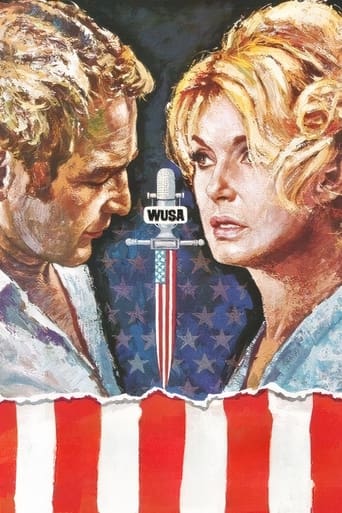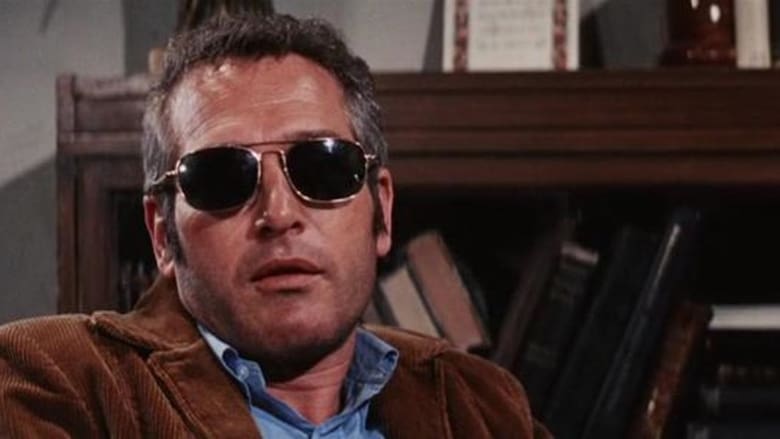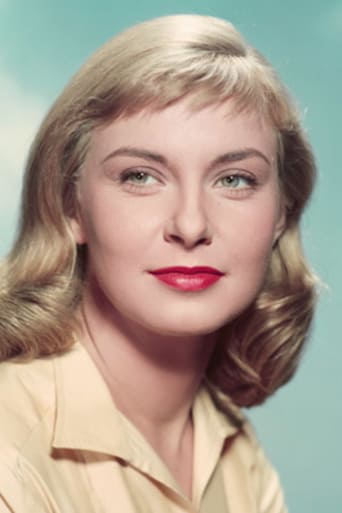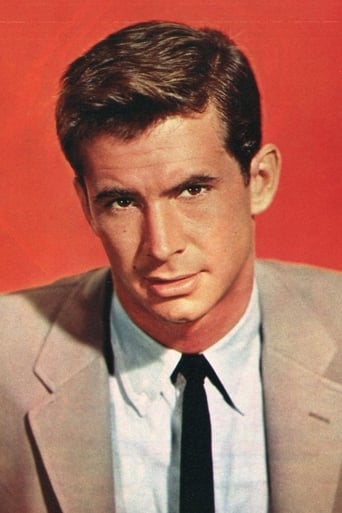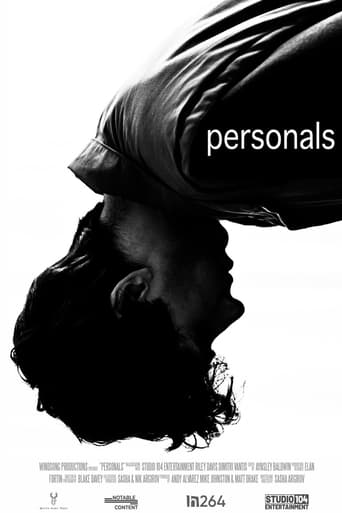WUSA (1970)
Rheinhardt, a cynical drifter, gets a job as an announcer for right-wing radio station WUSA in New Orleans. Rheinhardt is content to parrot WUSA's reactionary editorial stance on the air, even if he doesn't agree with it. Rheinhardt finds his cynical detachment challenged by a lady friend, Geraldine, and by Rainey, a neighbour and troubled idealist who becomes aware of WUSA's sinister, hidden purpose. And when events start spinning out of control, even Rheinhardt finds he must take a stand.
Watch Trailer
Cast


Similar titles
Reviews
The film never slows down or bores, plunging from one harrowing sequence to the next.
It's easily one of the freshest, sharpest and most enjoyable films of this year.
This movie tries so hard to be funny, yet it falls flat every time. Just another example of recycled ideas repackaged with women in an attempt to appeal to a certain audience.
By the time the dramatic fireworks start popping off, each one feels earned.
"WUSA" is extremely difficult on us in so many ways that to reach a final conclusion on why we like it or feel it relevant is something that demands a lot from viewers. You have a jaw dropping stellar cast (Paul Newman, Joanne Woodward, Anthony Perkins, Cloris Leachman, Laurence Harvey, Pat Hingle); a director who never extracted a bad performance with his films, the great Stuart Rosenberg ("Cool Hand Luke", "Voyage of the Damned", "Brubaker"); a story working with great basic elements involving the power of media, political and inner conflicts, rich vs. poor and more. What turned this perfect merge into a near let down was its writer Robert Stone, adapting his own novel, writing his first film screenplay and the blame is on him. That was exactly the problem. Stone didn't get the mechanics and language of cinema, over complicated a scenario that could and should be a little palatable to audiences, at least to generate interest for the characters. As said, "WUSA" is a near let down; gladly, we had the cast to save it from ruins and achieve a good cult status. In it, Newman plays the cynical and drunk Rheinhardt, a drifter who accepts a job at a radio station controlled by influential politicians whose motto seems quite familiar in our current times (Make this country Great Again). The WUSA station is one with a point of view, says Hingle character and that distorted point of view destine to include only a certain parcel of New Orleans population and excludes the rest in the majority, it starts to raise some concerns on a fellow named Rainey (Perkins), an idealist survey worker trying to discover the welfare problems faced by the black communities of the place. Rheinhardt and Rainey are neighbors who frequently clash at each other (cynicism vs. idealism; reality vs. utopia) and their quarrels are meddled by Geraldine (Woodward), of whom Rheinhardt has a more intimate involvement, and one that seems to get a grip on this wild drunkard who fail to notice that his bosses are planning something bad as local politics in upcoming elections, and worst of all...his editorials during the radio program are the main force behind the power WASP's success.Such overview of the film seems attractive, specially for those who love those kind of movies about inner conflicts and different schools of thoughts. However, the screenplay jumble up with practically every possible element and device needed to further the plot along with ones that doesn't add up to much. Examples: the radio thing takes an awful lot of time to happen and when it does, it's a huge disappointment that the film never shows what kind of material Newman's character presents to his listeners except "the future of America is up to you". The film allows us to see Rheinhardt shouting about being a liberal but blocks itself when it comes to present what are the actual plans of the powerful and their conservative speech. Perkins with the survey thing occupied a good portion of the film and could have been trimmed down just as much as some of the most tender scenes between the main couple (great chemistry though). Less with the romance, more with the politics and sinister plans, then we'd have a better film than what we've got. And let's face it: the movie doesn't show anything new. If you think "WUSA" is explosive, daring and ahead of its time, then you know very little of this world. "WUSA" just show something called the system and the system is controlled by a minority with money and power on the top of the pyramid, and below there's everyone else following their orders, directly and indirectly; and to avoid giving the appearance of a fascist organization they throw something called democracy, divides itself into parties that look and think different, begs us to vote but whenever there's a shift in the power gear it's always the same corrupt and crooked thing. It never changes, only small fractions but it's always the same and it cannot be challenged because they always come back to haunt or kill your opposition (Rainey defies a businessman at a party in one of the greatest sequences). True in the 1970's and before that, and a more harmful truth now. Obviously the film isn't on the nose with such idea but it's there whenever Rheinhardt opens his mouth, specially when it comes to belittle Rainey, of whom he calls a whiner. But the film keeps it real: the cynic drowns himself under the liquor; the idealist finally does something after spending too much time on a lethargic state (but obviously a wrong act) and the mediator in between them couldn't find the strength in herself to join them, debate ideals and find possible solution to their problems and the ones from the community. But she also had a past and problems of her own, many of which she can't seem to escape. The cast gathering is fine, despite the lack of involvement we have with the characters they play (no one gets saved, they're all critical but substantially real); the ideas carry some relevance but most of it gets torn apart and lost along the way making the experience of seeing "WUSA" a weary endeavor. The good qualities out-weight the bad at the end - I respected that conclusion despite being a predictable cliché. Watch with reservations and low expectations. 6/10
The drama between Paul Newman and Joanne Woodward carried this film for me until the arena scene. Newman idealizing to the crowd during utter chaos is the most unlikely and disappointing scene I've ever seen in the movies. It all broke down at that point for me. Like actors playing on stage on a sinking cruise ship, the floor fell out beneath them. Successive scenes seemed as in a dream or suddenly a reel from another film was being shown by mistake. Don't waste your time on this travesty of an abortion. You'll wish you had gotten drunk at your local pub instead. There would be better conclusions there about the state of the country and world than you'll come away with from this film.
Alcoholic ex-musician Paul Newman (as Rheinhardt) drifts into sweaty New Orleans, where he collects a $100 debt owed by bearded preacher Laurence Harvey (as Farley). The swindling pastor Harvey amusingly notes, "Ministers run a terrible risk with neurotic old women," and guides Mr. Newman to work at right-wing radio station "WUSA". For female companionship, Newman manages to pick up scar-faced barfly Joanne Woodward (as Geraldine), as she tries to peddle her wares for a square meal. The couple become acquainted with social worker Anthony Perkins (as Rainey), who unwittingly becomes involved in a welfare scheme.With good, almost prescient subject matter, writer Robert Stone's "A Hall of Mirrors" (1967) reads like it should have been a great counterculture film for 1970's #1 "Box Office Star" (then Newman's position, according to "Quigley Publications"). But, Newman and favored director Stuart Rosenberg fail to put "WUSA" over. Things start off well, with great New Orleans locations; and, the film is littered with terrific supporting performances. But, frankly, the real-life married Newmans drag it down. Everyone else is terrific, but they seem inauthentic as boozy pseudo-hippies. Hey Joe, loved seeing the (just deceased) Jimi Hendrix wall poster.***** WUSA (8/19/70) Stuart Rosenberg ~ Paul Newman, Joanne Woodward, Anthony Perkins, Laurence Harvey
Perhaps because the drama is so overwrought, Newman's acute underplaying is effective Rheinhardt is his most thorough cynic: a failure at marriage and as a musician, he's become a wandering, alcoholic opportunist, so spineless and corrupt he thinks nothing of taking a job as announcer for WUSA At lasta Newman character who's abandoned all ideals, ambitions and principles, who concentrates exclusively on surviving at all costs He's even worse than "Hud," because he realizes his corruption but persists In fact, he uses his self-knowledge to pretend superiorityto laugh secretly at the Neo-Fascists, while working for them He acts cynically and viciously toward liberal Do-Gooders because presumably he "knows the score," although he really envies their idealism; and he rises above it all to a liquor-soaked detachment His only ability is the put-ononce the essence of Harper's charm, now exposed as the weapon of a destructive mind Rheinhardt's first appearancehe drifts into New Orleans, unshaven, tired, defeated, brokeis like Fast Eddie's after his loss to Fats Like Eddie, he picks up a despairing, fallen woman, Geraldine (Joanne Woodward), a former hooker who, like Sarah, is physically and emotionally scarred As always, Woodward flawlessly portrays the fragile, easily hurt woman who is wary of Newman, but who ends up giving him more affection than he can return They have some tender scenes, but with her, as with everyone else, he's most1y indifferent and uninvolved "WUSA" suffers from conversations that sound like speeches, heavy-handed direction, and a paradoxical reluctance really to meet the issues head-on

